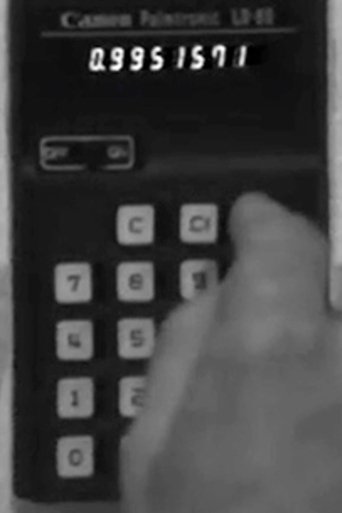
Cycles of 3s and 7s
“Cycles of 3s and 7s is a doubled statement. First and foremost, it is a commentary on computer art and the role of computers in video. Secondly, its arithmetic project has some bearing on the construction of musical scales. In reclaiming the computer as a performance instrument, I intended that the human operator must compete directly with the computer, doing what the computer does best. The selection of a simple hand calculator was a deliberate denial of the computer aesth/ethic of bigger, faster: computer art must be doable within even the most modest architecture. Cycles of 3s and 7s shows that it is not the answer that ‘counts,’ but the pleasure in getting there. Simple rote calculation is turned into rhythm and song; accuracy of gesture and count become a game. These are ‘stories’ about numbers, the kind machines should like to hear and tell—if they ‘liked.’” - Tony Conrad
- Overview
- Crew
Cycles of 3s and 7s
- Overview
- Crew
Status
Released
Release Date
Jan 1, 1977
Runtime
0h 12m
Original Title
Cycles of 3s and 7s
Director
Tony Conrad
Description
“Cycles of 3s and 7s is a doubled statement. First and foremost, it is a commentary on computer art and the role of computers in video. Secondly, its arithmetic project has some bearing on the construction of musical scales. In reclaiming the computer as a performance instrument, I intended that the human operator must compete directly with the computer, doing what the computer does best. The selection of a simple hand calculator was a deliberate denial of the computer aesth/ethic of bigger, faster: computer art must be doable within even the most modest architecture. Cycles of 3s and 7s shows that it is not the answer that ‘counts,’ but the pleasure in getting there. Simple rote calculation is turned into rhythm and song; accuracy of gesture and count become a game. These are ‘stories’ about numbers, the kind machines should like to hear and tell—if they ‘liked.’” - Tony Conrad
